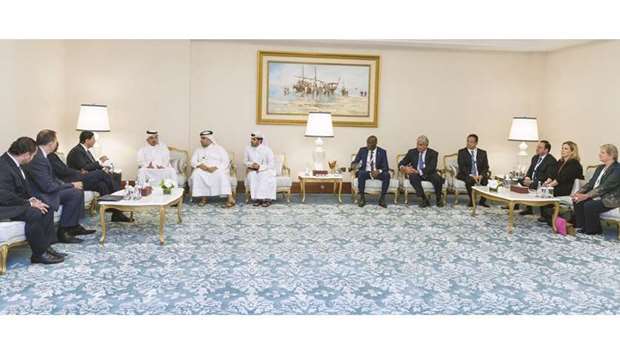A National Tourism Council will soon replace Qatar Tourism Authority (QTA) as part of Qatar’s efforts to restructure the sector.
Speaking at the World Tourism Day celebration in Doha yesterday, HE the Prime Minister and Interior Minister Sheikh Abdullah bin Nasser bin Khalifa al-Thani said the sector’s governance is set to be re-organised in the coming months.
The council will focus on strategic planning, attracting investments, developing and delivering festivals, regulatory affairs, and enhancing the visitor experience at every touch point.
According to QTA, the council will report to a board of high-level representatives from relevant sectors and private sector entities, which will be chaired by HE the Prime Minister and Interior Minister.
The council will guide the overall development of the sector, monitor tourism sector performance, and ensure cross-sector collaboration and focus, QTA added.
The board will oversee three new entities, which will be charged with developing large-scale tourism products and experiences, promoting the experiences internationally, and consolidating the efforts of existing players in the business events sub-sector.
“This is an exciting journey. It involves further defining the position and products that make Qatar unique,” QTA said.
“Such move involves facilitating the marketing and investments needed to realise rapid and sustainable growth. It also involves transforming the way that we regulate and operate the industry itself,” QTA added.
About Qatar’s new tourism strategy, United Nations World Tourism Organisation (UNWTO) secretary general Taleb Rifai said these changes in the lead up to the FIFA World Cup in 2022 will open a new era for development in the country.
“Over my eight years as secretary general, I have seen how Qatar has developed into a prime tourism destination. UNWTO is very happy to have been part of that process,” he added.
The event also marked the launching of Qatar’s ‘Next Chapter of its National Tourism Sector Strategy,’ which charts a five-year plan of sustainable growth up to and beyond the 2022 FIFA World Cup.
“I trust that together – creating true partnerships between all stakeholders – both public and private – you will achieve your national objective to develop tourism as a tool for a better future for Qatar,” Rifai said.
He lauded the country’s decision to waive entry visa requirements for citizens of 80 countries last month, saying that such travel facilitation forms an integral part of developing tourism and unlocking its socio-economic benefits.
UNWTO supported Qatar’s new visa policy, citing it as a commitment to position tourism as a sector to diversify the economy, enhance sustainability – environmental, economic, and cultural – and a national priority for the coming five years.
Part of the new strategy involves further defining the position and products that make Qatar unique such as facilitating the marketing and investments needed to realise rapid and sustainable growth.

HE the Prime Minister and Minister of Interior Sheikh Abdullah bin Nasser bin Khalifa al-Thani meeting tourism ministers and heads of delegations participating at the official celebration of World Tourism Day 2017 in Doha yesterday.



